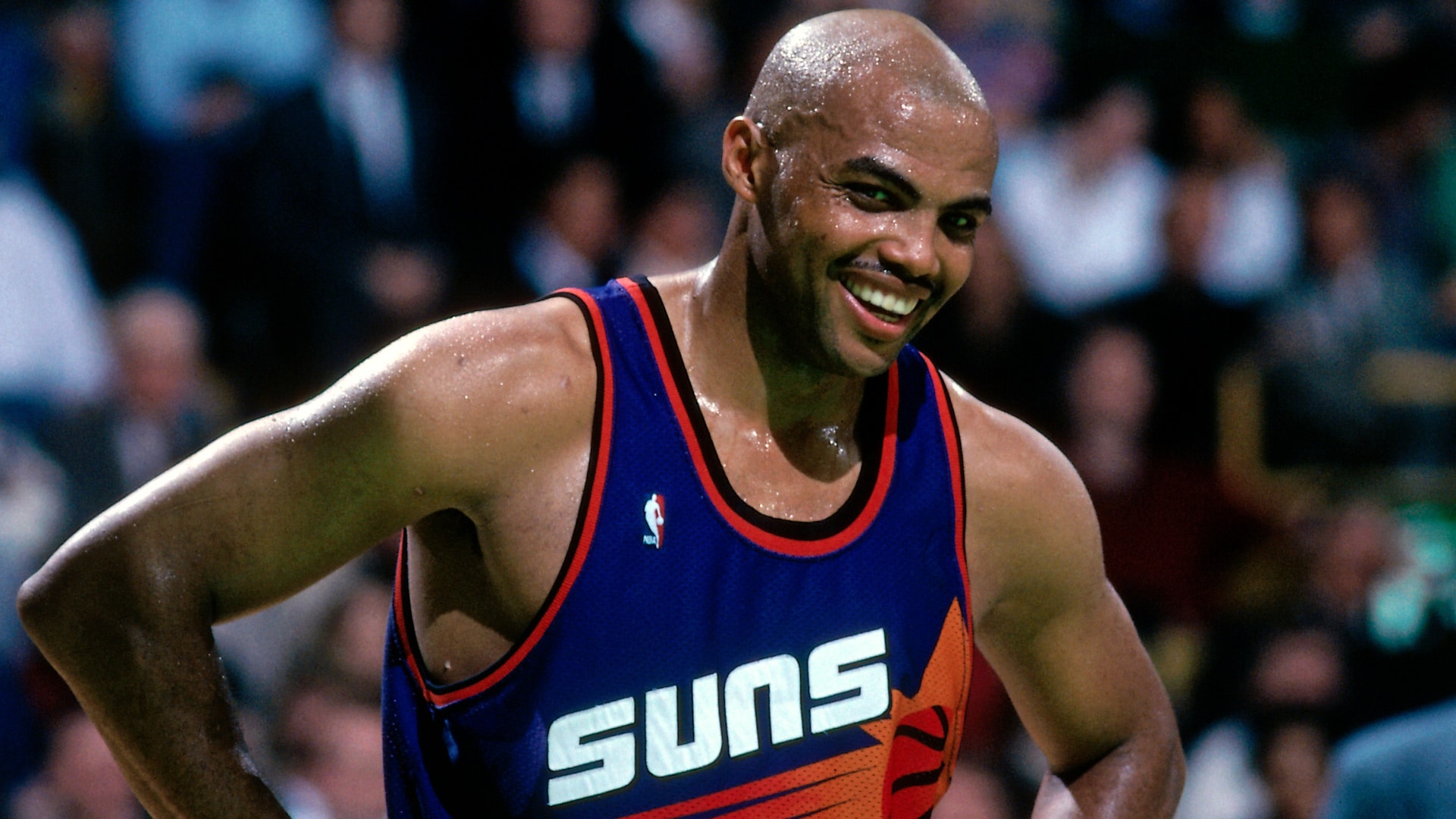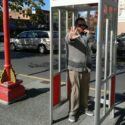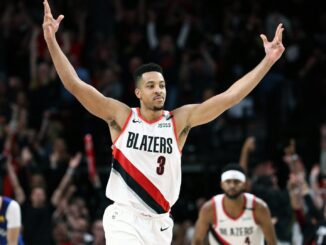
It’s no secret that the Portland Trail Blazers have faced an uphill battle since losing in the NBA Finals in 1992. But what if they had traded for another superstar to pair with Clyde Drexler that summer. How might they have fared in the years to follow?
In a word: better.
Portland added Rod Strickland and Mario Elie in 1993, won 51 games, but lost in the first round after three straight trips to the conference finals. In the offseason, they traded Kevin Duckworth to Washington and Elie was traded to Houston. They won 47 games in 1994 and had an emerging star in F/C Cliff Robinson, but they again lost in the first round.
In 1995, Portland limped to a winning record but traded an aging Clyde Drexler at the deadline. The team still managed to make the playoffs, again lost in the first round, and that was the end of the Drexler era.
While February of 1995 is where some mark the end of the Blazers dynasty of the 1990s, one could argue it happened in June of 1992.
But what if—and this is a large what if—it didn’t have to end that way, and so painfully?
Drexler may have requested a trade in 1995, after he had started feeling the pain of carrying the team for so many years, but another star in the league outright demanded a trade to a contender following the 1992 season, and Portland was even high on his wish list.
In 1992, Charles Barkley started 75 games for the Philadelphia 76ers, averaging 23 points with 11 rebounds, 4 assists, 2 steals, and one block per game. He was 28 years old, in his prime, and in the middle of six straight all-star selections and five All-NBA selections. Barkley wanted out of Philadelphia, and rightfully so. He wanted to go somewhere and compete for a championship, something the 76ers were not capable of.
If you were looking for how the Blazers might benefit from Barkely’s production, Robinson was the closest player the Blazers had to Barkely. And while I love Cliff and his ability to arguably play all five positions better than anyone until Kevin Durant came along, he was no Sir Charles. In 1993, the year Barkley would have joined the team, Cliff had averages of 19 points, 6 rebounds, 2 assists, and 2 blocks in 30min a night off the bench. Even in his lone all-star season in 1994, Cliff averaged 20 points, 7 rebounds, 2 assists, and 1 block per game while starting 64 contests. Great numbers for a player on the rise, but not a player of Barkley’s caliber.
Some of you might be thinking Buck Williams was an excellent comparison to Chuck, and that we already had our own version of Barkley, but you’d be wrong. Buck was an outstanding player, but his best years were behind him in the mid 90’s and his main contributions were rebounding and defense, which Charles did along with scoring and setting up shots for his teammates.
You could make the argument that Buck played in the West and it was harder to get all-star nods. Probably true, but Buck spent the first 8 years of his career in the East, earning three all-star selections. Charles also spent the first 8 years of his career in the East, and earned six all-star selections. Now that doesn’t by any stretch make Charles three times the player Buck was—not even double. But it is worth mentioning.
By the end of his career, Buck Williams had three all-star selections and five All-NBA selections.
By the end of his career, Charles Barkley had eleven all-star selections and eleven All-NBA selections.
Over 17 seasons, Buck averaged 13 points, 10 rebounds, and 1 assist per game.
Over 16 seasons, Barkley averaged 22 points, 12 rebounds, and 4 assists per game. Buck was great, but Barkley was All-Time great.
That’s the difference here, and it doesn’t take anything away from what Buck did. Charles was quite simply—better. There are a lot of solid reasons that Barkley is in the Hall of Fame, and some decent arguments why Buck isn’t.
So how would Portland have made a trade for Barkley happen? The easy answer is assets in the form of a young star and some prospects with potential. Phoenix, which would become Barkley’s team in 1993, sent Jeff Hornaceck, and two guys I promise you haven’t heard of in exchange for one the NBA’s best players. This is where I might lose some of you ,and that’s ok. But what if Portland sent Jerome Kersey and a couple of young players?
Ok, I get it, you hate that idea—and so do I. So what if we keep Kersey and offer this instead: Cliff Robinson, Dave Johnson, and Alaa Abdelnaby for Barkley? Throw in Robert Pack instead of Johnson if you need to; you know he’s not staying here anyway. I know you’re probably asking yourself who these guys listed next to Robinson are, and the answer is no one important to Blazers lore. So why not? Yes you lose Robinson, who is a really solid rotation player, but not essential, since that’s all we hear about these days. Barkley was essential. So make the deal. If you have to sweeten it with picks, do it. We’re not talking about a what if on the player here, he absolutely makes the team better. What we’re here to discuss is how he would have changed Portland’s potential to win a title before they lost Clyde.
Well here goes: In 1993, Barkley was the MVP of the league and led Phoenix to 62 wins and their first trip to the NBA Finals since 1976. They lost to the Chicago Bulls in the Finals and made it to the 2nd round the following year where they were eliminated in seven games at the hands of the eventual champion Houston Rockets and future HOF center Hakeem Olajuwon.
Guess what happened in 1995? They again lost in seven games to the Rockets, this time against Hakeem and Clyde, who had been acquired from Portland.
In 1996, they broke even with a 41-41 record, lost to the Spurs in the first round, then traded Barkley to the Rockets in the offseason.
So in the span of four years, you have two all-time greats getting their teams to the NBA Finals, losing to Michael Jordan, and then one rides along with Hakeem for a championship while the other loses to Jordan and Hakeem before being traded to Hakeem’s team to team up with him and Drexler. In 1997, Hakeem, Drexler, and Barkley attempted one last ride to glory, getting all the way to the conference finals where they were defeated by the Utah Jazz, who then went on to lose to Jordan’s Bulls. And if you’re wondering if the three all-timers were just shells of their former selves, think again. In the playoffs, they combined for 40 points, 29 rebounds, 12 assists, and 5 steals—while averaging more than 35 min per game each. So we know Chuck and Clyde could co-exist. We don’t need to guess at it. They had played together in the 1992 Summer Olympics, and they shared the court for most of the 1997 season and throughout the playoffs.
You know for a fact that Clyde and Barkley can co-exist, and you can’t tell me adding a superstar to the team doesn’t automatically increase their chances to get back to the Finals. And here’s the thing about adding superstars – it’s never a bad idea. So you add Barkley to the team, and at worst you lose Kersey, and at best you lose Robinson. But either way you gain Charles Barkley! There’s no way Portland is sent packing in the first round of the 1993 playoffs; Portland probably keeps Danny Ainge and doesn’t lose him to the Suns; and who knows maybe Portland is even the top seed that year with no Suns team in their way and an actually re-loaded lineup to take on the Bulls a second time. Seattle was really good that year also but I think Portland could have made it past them if it came to it.
Even if you don’t make it in 1993, you now have two years without Jordan in 1994 and 1995 to make it all count before your core guys start showing their age. Your main opponent is Houston, and with Drexler and Barkely, I think you have a real shot at taking them down, and then it’s a tough but winnable series with the Knicks. Don’t get it done in 1994? Then you just need to get past the Rockets (who did not look as dominant while defending their title), take on the Spurs (who never made it to the Finals prior to 1999 so you can’t count on them), then get a shot at an overachieving Orlando team featuring Penny Hardaway, a very young and in-shape Shaq, Nick Anderson, and Horace Grant, with not much depth.
Of course none of this is for certain, but I would love to hear how or why adding Barkley doesn’t automatically make Portland the best team in the West from 1993-1996 with this trade going through. I can’t make any promises after 1996 since that’s when the Bulls went on their second run with a rested up Jordan, but if Portland has Drexler and Barkley for at least those four seasons, I would be extremely shocked if they don’t at least get to the Finals, if not win a championship—especially with Jordan out of the league for two of them.
You might want to go back and draft Jordan, or Bird, or Durant, but if you really have access to a time machine, you might just think about bringing Barkley to Portland.




